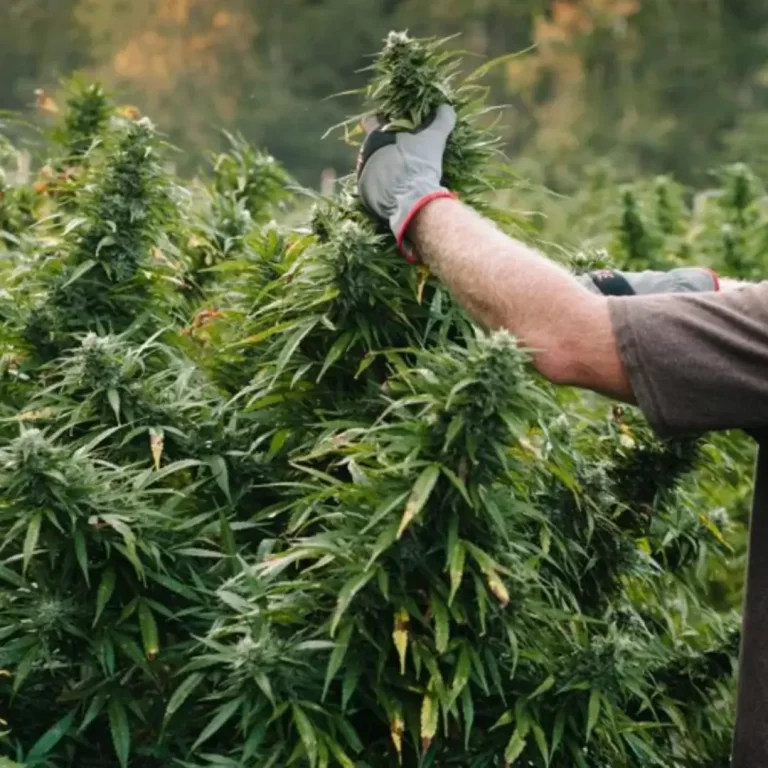
California Rep Introduces Bill to Legalize Direct-to-Consumer Weed Delivery
- Cannabis News
- Cannabutter Digest
Two Democratic Congressmen recently introduced a federal bill that, if passed, would allow small, licensed marijuana cultivators to conduct mail-order commerce with customers both in and out of state.
Jared Huffman, Democratic Representative for California’s 2nd Congressional District, and Earl Blumenauer, Democratic Representative for Oregon’s 3rd District, introduced H.R. 8825, or the Small and Homestead Independent Producers (SHIP) Act, last Wednesday to the U.S. House of Representatives.
According to A.J. Herrington in Forbes, the SHIP Act intends to position small marijuana cultivators and manufacturers to compete in the national cannabis marketplace when and if the government takes action to cease prohibition at the federal level. These small producers would have the opportunity to sell and ship their products across state lines to customers in other states where cannabis is legal.
Some of the challenges currently faced by small marijuana producers at the state level include difficulty affording licensing fees and high tax rates and difficulty competing against large corporations that can more readily afford advertising and distribution costs while offering lower prices for their products.
Representative Huffman explains the intent of his bill in a September 14th tweet: “As policies change, we cannot leave our smallest family-farmers behind. With my bill, these small businesses can have the chance to compete and succeed in a fully legalized cannabis market.”
With similar fervor, Representative Blumenauer lists cannabis reform on his website as a top priority, issuing the following plea: “Our country must end the failed policy of cannabis prohibition … The War on Drugs has failed. We’ve spent over a trillion dollars and gained only the world’s largest prison population.”
Huffman’s and Blumenauer’s SHIP Act defines a “small cultivator of marijuana” as “a person who cultivates one acre or less of mature flowering marijuana plant canopy using outdoor cultivation, 22,000 square feet or less of marijuana plant canopy using greenhouse cultivation, or 5,000 square feet or fewer of mature flowering marijuana plant canopy using indoor cultivation …” Furthermore, the bill defines a “small manufacturer” of cannabis products as someone with gross annual revenue of less than five million dollars.
As Kyle Jaeger explains in a September article for Marijuana Moment, small cannabis cultivators are having a hard time competing, even at the state level, against large corporations that have the means to mass produce and mass distribute their products. The SHIP Act, however, would allow these small operations to market themselves as artisan producers of high-quality, craft cannabis products, much like craft cheese, coffee, honey, or any other products produced by small, specialized farms.
The bill has garnered support from at least a dozen trade organizations across the country, including F.A.R.M.S. Inc., Origins Council, Vermont Growers Association, Nevada County Cannabis Alliance, Sonoma County Growers Alliance, and Maine Craft Cannabis. The SHIP Act also has the endorsement of the Parabola Center for Law and Policy and is popular among small, independent cannabis cultivators, especially in Huffman’s “Emerald Triangle” region of California.
Lawmakers at the state level have signaled support for interstate cannabis commerce, with bills appearing in California, Oregon, and New Jersey. Nicholas Scutari, Democratic President of the New Jersey Senate, is behind Bill S3012. Kyle Jaeger detailed the New Jersey bill in an August article for Marijuana Moment, noting, “with more state adult-use marijuana markets coming online in the Northeast region, the legislation is timely, proposing to create the policy infrastructure for interstate cannabis commerce that could significantly expand the currently fragmented industry and help resolve possible supply and demand issues.”
One challenge of a bill like S3012 is that it requires other states to meet New Jersey’s regulatory requirements for things like quality testing, labeling, and safety. Because marijuana is regulated entirely at the state level, policies and standards vary from one state to the next. States with incompatible regulations won’t necessarily qualify to do business with New Jersey. In this matter, the bill places limits on interstate cannabis commerce and points to the potential need for some kind of regulatory consistency across the states.
Another relevant event in the unfolding discussion around interstate cannabis commerce, as covered in an August post for Cannabutter Digest, is a federal appellate court’s ruling that Maine’s residency requirement for ownership of medical marijuana dispensaries is unconstitutional. In a 2-1 ruling, the U.S. Court of Appeals for the First Circuit determined on August 17th that the residency requirement violates the Dormant Commerce Clause of the United States Constitution.
The Dormant Commerce Clause, as explained by Cornell Law, “refers to the prohibition, implicit in the Commerce Clause, against states passing legislation that discriminates against or excessively burdens interstate commerce. Of particular importance here is the prevention of protectionist state policies that favor state citizens or businesses at the expense of non-citizens conducting business within that state.”
If Maine’s residency requirement for medical dispensaries is deemed protectionist, the same could be argued regarding policies that prevent the import or export of cannabis products to and from other states, Kyle Jaeger explains. This is particularly true of the medical cannabis market, which is protected from interference from the Justice Department by the 2014 Rohrabacher-Farr amendment, which Congress has continued to renew annually. The implication is that consenting states within this court’s jurisdiction could participate in medical cannabis commerce without federal prosecution.
The Rohrabacher-Farr amendment does not apply to the adult-use cannabis market, and ultimately, it’s important to note that even if passed, enactment of the SHIP Act or any of the state bills concerning interstate cannabis commerce for the adult market will ultimately rely upon an end to federal prohibition or, at the very least, legislation that would impede the Justice Department from taking action against participating states for violating the Controlled Substances Act of 1970, which still lists marijuana as a Schedule 1 drug alongside heroin, LSD, and ecstasy.
In putting forward the SHIP Act, Huffman and Blumenauer are signaling their confidence, or perhaps insistence, that the federal government is moving closer to legalization. Our team has covered the most recent developments concerning federal legalization here and here.
Stay with Cannabutter Digest for recipes, fresh product reviews, and the latest cannabis news from around the world.






